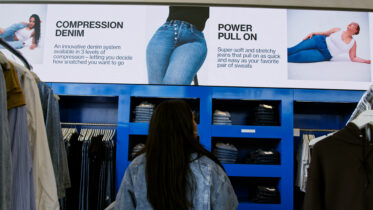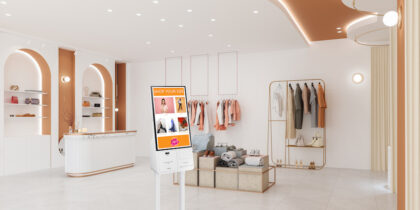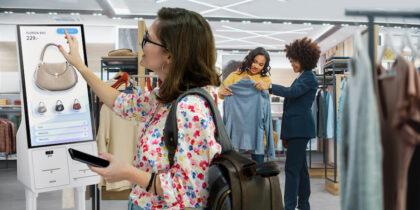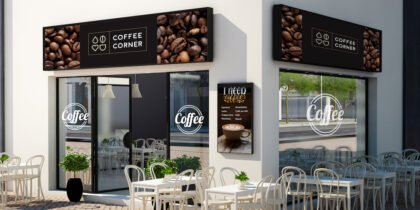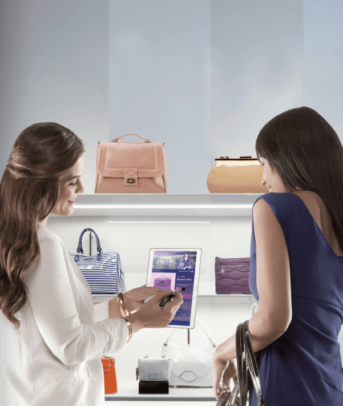Customer loyalty is the name of the game when it comes to long-term retail survival. While one-to-one relationships have been an ongoing quest for years, the adoption of retail beacon technology — and coinciding geolocation functionality — could be just the boost retailers need to cultivate these coveted relationships.
Retailers that can foster customer engagement as a means of driving customer loyalty will derive an array of benefits, including financial gains and long-term brand advocates. However, these achievements aren’t short-term — they must be nurtured and developed over time. It’s a process that requires a stringent understanding of customer preferences and behaviors, and using this information to deliver the optimal mix of merchandise and services will keep loyal shoppers frequenting the brand.
Too often, however, retailers lack the understanding of the details impacting this customer demand. Even more sobering is that half of retailers struggle with how to uniquely identify customers, or predict customer traffic or footfall in stores, according to “The State of the Industry Research Series 2015: Customer Context Power — A Success Imperative,” a report from Edgell Knowledge Network. However, the adoption of retail beacon technology and associated geolocation capabilities can help retailers achieve their long-term engagement goals. Beacons are low-power, micro-location gadgets that use Bluetooth technology to transmit signals to consumers’ mobile devices. When tied to a geolocation application, this combination takes on an entirely new role — one that can identify the geographical location of a person via their personal smart device.
Resembling a traditional global positioning system, beacon-based geolocation programs help retailers track and communicate with smartphone-connected shoppers via push notifications that reveal targeted promotions and up-selling opportunities, among other campaigns, all delivered based on the specific aisles or merchandise displays consumers approach. Retailers are so bullish on the value of beacons that 38 percent of companies will add the functionality over the next three years — an increase of 224 percent, according to “Mobile Technology — Transforming the Customer Experience,” a report from Boston Retail Partners. The following brands are already seeing success through the use of beacons.
GameStop
Focused on engaging its “PowerUp” loyalty members and creating a more personalized store experience, GameStop is using beacons to merge geolocation via mobility. Championed by GameStop’s Technology Institute (GTI), the company’s innovation division, the initial project encompassed 36 stores throughout its Austin- and College Station-based Texas test markets.
The company embedded beacons in dedicated store zones separated by product categories. As shoppers move their smartphones close to devices installed on store shelving, they instantly receive real-time, digital content that’s specifically tailored to their areas of interest — and all communications are delivered via push notifications through the retailer’s app.
“Digitization of the physical retail space has always been a top priority of GTI,” says Charlie Larkin, senior director of technology innovation at GameStop. “Through our initial deployment of the iBeacon platform, there are numerous ways to leverage the emerging technology to deliver a next-generation shopping experience.” Pending positive feedback, GameStop said in a statement that the company plans to add 60 more locations.
The HBC Department Store Group
The HBC Department Store Group operates more than 130 Hudson’s Bay and Lord & Taylor department stores across North America, and each location welcomes thousands of shoppers daily. Eager to automatically deliver branded content and personalized offers to in-store shoppers, the retailer installed beacons throughout its locations to trigger unique and relevant content to shoppers as they navigate multiple departments.
An end-to-end beacon platform delivers targeted content and offers to consumers based on their specific location and behavior at the store. “We recognize the appetite for mobile experiences that cater to our customers’ immediate needs and preferences, while also providing a seamless and effortless experience,” says Michael Crotty, executive vice president and chief marketing officer for Hudson’s Bay Company and Lord & Taylor. “Beacon technology is the future of retail marketing. The platform will assist us to make every customer visit to Hudson’s Bay or Lord & Taylor even more rewarding.”
Macy’s
The iconic department store chain is conducting its own closed beacon beta at its New York City Herald Square and San Francisco Union Square locations. Macy’s beacon platform welcomes shoppers when they enter a store, presents location- and department-specific deals and discounts, makes recommendations and delivers rewards — all without the customers having to open a dedicated app. The program also merges the omnichannel experience by reminding the shopper via push notifications if desired merchandise is available when they enter the store.
These are only a few examples that illustrate the power of beacons and geolocation tools. As retailers become more comfortable with the technology, they too will be on pace to meet customers’ increasing expectations and drive long-term loyalty.
Read more about the potential applications of beacon technology in retail settings.
